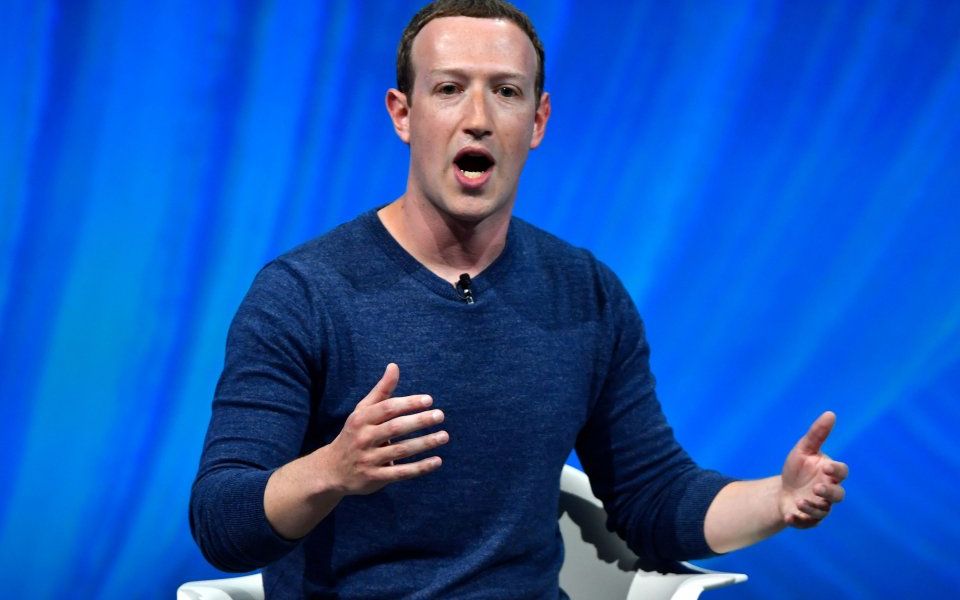#DeleteFacebook: How can the social media giant bounce back?

THE HASHTAG WAS popularised by Twitter. Now it is being used to criticise the company that owns Twitter, on Twitter. #DeleteFacebook is only the latest proof that the social media giant is in trouble. Fake news, falling stock, glaring data breaches. A 9% drop off Facebook’s shares. Mark Zuckerberg’s world-beating platform is in the middle of a public reckoning. Maybe it’s about time.
The problems started last year. Facebook was accused of missing Russian hackers who had penetrated the platform to meddle with Western elections. Sean Parker, the former president of Facebook, admitted that the site was made to exploit human vulnerabilities. A former executive, Chamath Palihapitiya, went one further, saying Facebook was ‘ripping society apart’. And things got worse from there. Reports of Cambridge Analytica’s massive harvest of Facebook user data surfaced last week in what Quartz called a ‘certifiable s***show’. It transpired that this very same Cambridge Analytica, whose boss was caught on camera boasting about using ‘beautiful Ukrainian girls’ to entrap his clients’ political opponents, was crucial to Donald Trump’s presidential victory.
But the truth is that the public have been turning against Facebook for some time. What began as a social network, used by friends and acquaintances to keep in touch, has become something else completely. Rather than consolidate, Mark Zuckerberg and his team have tried to make Facebook everything to everyone over the past few years. Social network now seems an inadequate description of something used by businesses, flooded with advertisements and saturated with news. Young people and millennials increasingly prefer Instagram or Snapchat. To this demographic, Facebook has become ‘establishment’.
Those in the reputation management game have been watching these events play out with interest. Needless to say Zuckerberg’s rumoured 2020 presidential run now looks unlikely. Convincing the public that Facebook is not corrupt or greedy, that it isn’t taking your personal information or promoting real fake news is a full-time job. First, Zuckerberg needs to show some transparency, a lack of which has plagued the valley he helped to make a household name. He showed some of this on Wednesday, when, contradicting a spokesperson who said that Cambridge Analytica had ‘deceived’ the platform, admitted that ‘at the end of the day’ he was personally responsible. That’s a good start, even if Zuckerberg did take five days to reply to the scandal in the first place.
Regulators in Europe and the U.S. are investigating claims that Facebook knew about Cambridge Analytica as early as 2015, but did nothing to alert users. It may not be true, but if it were, it would not be surprising. Facebook’s attitude towards accuracy and privacy has always been over-casual, and the social media giant has often been slow to admit to its own failings. Remember how in early 2017, Mark Zuckerberg said the idea that fake news had played a part in the presidential election was ‘pretty crazy’? And remember how in September, Facebook said firms linked to the Russian government had only spent $100,000 on 3,000 adverts, cheerfully ignoring the fact that upwards of 150 million users had seen free posts by Russian operatives? This has to stop, and if Facebook has many more skeletons in the closet, now is the time to open the doors and deal with them.
Users, meanwhile, need to know what information is being taken from them and why. Small print buried deep in the terms and conditions is not enough. They also need to know what their Facebook addiction is doing to their mental health. When Facebook acknowledged the detrimental effects of the platform on the mind in December last year, it said the solution was to use the platform more––only in a different way that improved well-being. Wrong answer.
But maybe it’s not Facebook themselves who will solve their problems. In many quarters, the belief is that it is high time that an independent party scrutinised the platform and its approach to privacy and data, not to mention its role in various elections. An independent examination like this would need to be through, and its findings publicly available. Why? Because the reality is that even if Facebook commit to transparency, a large number of the global population won’t believe they’re being told everything they should.
Bloomberg predicts that 2018 will be even worse for Facebook than 2017 was. Unless the social network wants that trend to continue into 2019, there needs to a be a dramatic change. What’s certain is that Mark Zuckerberg and his senior team at Facebook have their work cut out.